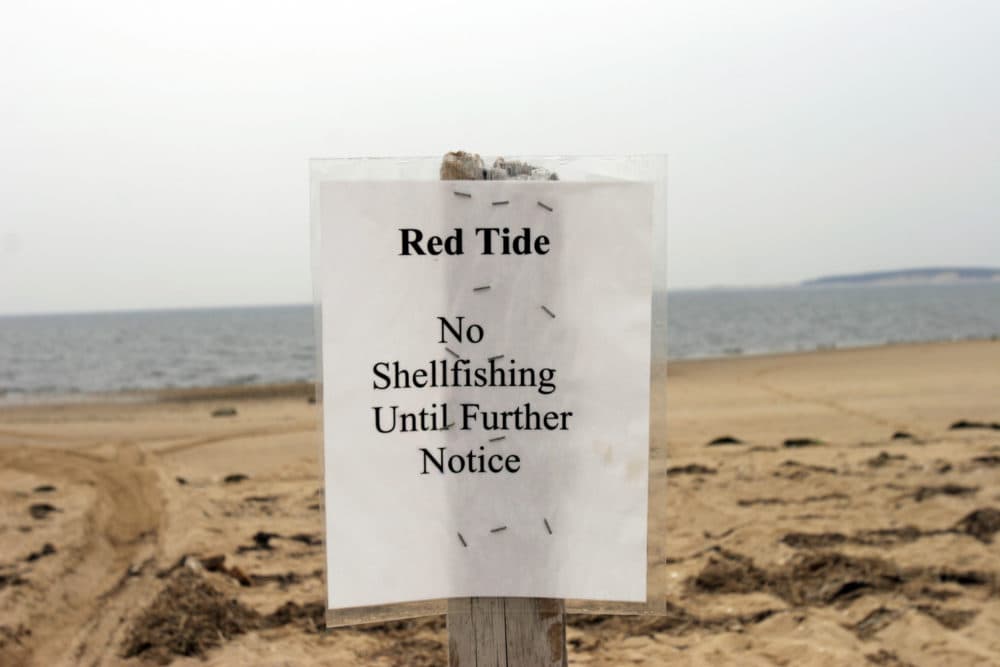Advertisement
North Shore restaurants breath sigh of relief as some red tide restrictions are lifted

Fourth of July weekend was a bit different this year at the Ipswich Clambake. Thanks to an outbreak of a toxic algae known as red tide, the restaurant was unable to serve its signature seafood.
"We pride ourselves in being able to serve our local clams because they're the best," said Ken Siegel, owner of the Clambake.
But purveyors like Siegel and others on the North Shore are breathing a slight sigh of relief this weekend after the state relaxed some of its restrictions on harvesting local soft shell clams in Essex. The harvesting restrictions were implemented there — and along other areas of the state's coastline — last month.
Shellfish with red tide, also known as paralytic shellfish poisoning, can cause illness or death in humans if consumed. It occurs when algae grows out of control, producing toxins in their waters that are harmful for humans and animals. Those toxins can accumulate in shellfish like mussels, oysters and clams. As the name suggests, it can also turn the surrounding water red.
Restrictions are put in place to stop the harvesting of shellfish in areas where high toxins are detected.
Siegel says when these restrictions are in place, he buys seafood from out of state, which impacts him and his customers' wallets.
"It also raises the price of the substitutes that we have to get typically from places like Maine, so it hurts everybody," said Siegel.
He adds that gas prices and supply chain woes are also impacting his bottom line, and he expects that to continue.
Johanna Pechilis Aggelakis, owner of the Clam Box of Ipswich, also buys seafood from Maine when red tide restrictions are in place.
"They're more expensive, they're not as delicious — but they're still very good," said Pechilis Aggelakis. "The clam flats in Maine don't have the mineral richness that they do in Ipswich. So that's the difference in the flavor, but it really drives the prices up."
Though restrictions have been partially lifted through parts of the North Shore, they remain in place on large swaths of the Massachusetts coastline, including in Gloucester, and Cape Cod and Massachusetts bays. These are set to remain in place anywhere from a week to a month, at a minimum, until toxicity levels show signs of dropping consistently.
If people do want to buy local shellfish in affected areas, experts recommend they purchase from reputable sources until the restrictions are lifted.
